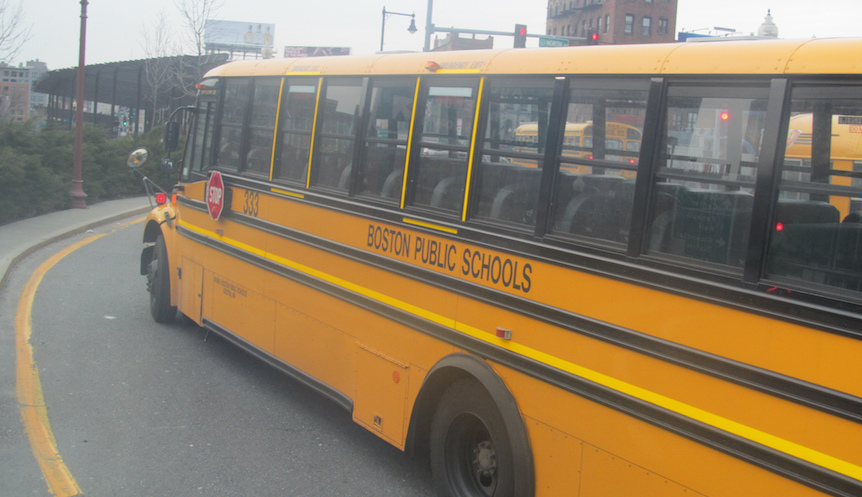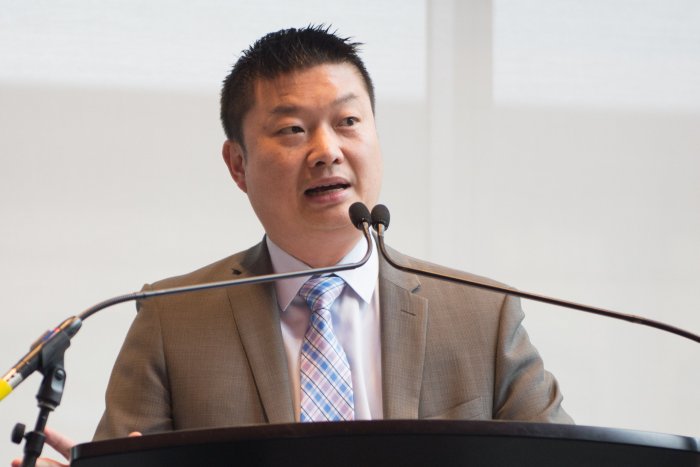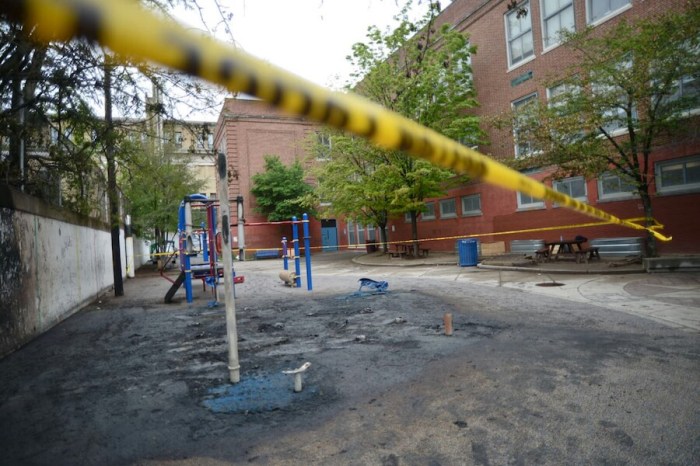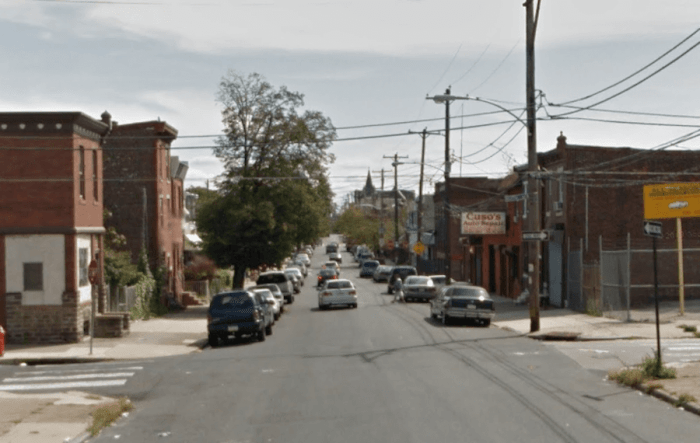For high school students balancing academics, homework, athletics and a part-time job, it can be a challenge to clock the 8.5 hours of sleep teens need — and make it to school in time for the 7:30 a.m. bell.
Mary Hamaker, founder of the Massachusetts chapter of Start School Later, is on a mission to help adolescents get enough sleep by rolling back school start times. It is a change she says would increase academic performance and reduce risk behaviors, depression and anxiety.
Hamaker and several other members of the nonprofit organization visited the State House on Tuesday to present petitions to push back school start times to a number of lawmakers including Dedham Rep. Paul McMurtry.
McMurtry filed a bill to study later school start times earlier this year. It is a shift McMurtry said would entail a “cultural change,” but one he thinks merits exploration.
“It’s a topic that I feel is worthy of a conversation and consideration of legislation from industry experts, the medical community, educators, parents,” McMurtry said. “I feel … a moral obligation to make sure that we as policymakers do whatever we can to give adolescents in the Commonwealth of Massachusetts the best possible advantage.”
Start School Later recommends the state set 8:30 a.m. as the earliest start time for middle and high schools in Massachusetts. Right now, local districts set their own start times. Pushing school back an hour from the state average of 7:37 a.m. would help high schoolers get the 8.5 to 9.5 hours of sleep they need every night, Hamaker said.
Hamaker explained teens undergo changes in sleep habits during puberty. At age 12 or 13, kids produce the sleep hormone melatonin up to two hours later than when they were younger. This continues through puberty and reverses in adulthood, Hamaker said.
“Parents find that their morning lark is no longer and that the children whom they could put to bed at 8:30 or 9 o’clock at night suddenly, literally cannot fall asleep until 10:30 or 11,” Hamaker said. “During this time, these individuals need 8 and a half to 9 and a half hours of sleep. But it’s not just any 8 and a half to 9 and a half hours of sleep. It needs to be when their biological clock is programmed to sleep.”
Later start times could give adolescents the sleep their bodies crave and reduce health issues like obesity, diabetes and even heart disease, Hamaker said. The shift could increase attendance and first period grades while reducing mental health problems, she added. Later start times are backed by groups like the American Academy of Pediatrics and the National Sleep Foundation.
“Give kids more sleep. It’s just so common sense,” Hamaker said. “And yet, fear of change is getting in the way. And money.”
Glenn Koocher, executive director of the Massachusetts Association of School Committees, said his organization has not taken a stance on later start times, though it intends to study the issue further.
“We know later start times are better as kids get older, but trying to make it happen is a logistical task,” he said.
Koocher pointed to issues like increased transportation costs if all students start at the same time in the morning. The traditional tiered schedule most districts use now allows fewer buses to do multiple routes. Later start times could also disrupt the schedules of working parents who have to get out the door early in the morning.
“It is a very complicated issue,” Koocher said.
McMurtry agreed later start times is a “multifaceted” issue. He filed H 3480, An Act Encouraging Academic Success, in January to study the “mental and physical effects of a later start time for school days on students, and the social economic and safety concerns of such a later start time.”
McMurtry said many groups should be involved in the conversation including policymakers, parents, teachers, workplaces and the business community. Co-sponsors of the bill include Sen. Richard Ross and Reps. Linda Campbell, Robert Koczera, Paul Tucker, Brian Ashe and Shauna O’Connell.
O’Connell, one of two Republican co-sponsors, said the bill is an opportunity for bipartisanship.
“Whenever it comes to kids it should be bipartisan,” O’Connell said. “So we can come up with smart solutions.”
O’Connell said she is open to having a conversation about school start times. Her hometown of Taunton has already studied later school start times, she added.
“We know kids do better when they sleep a little later,” O’Connell said. “I have two daughters who are at the bus stop in the winter before the sun comes up.”
Several school districts in the state have adopted later start times, including Nauset High School and Sharon High School.
Tom Scott, executive director of the Massachusetts Association of School Superintendents, agreed studying later start times in schools is “perfectly appropriate.” But that doesn’t mean the shift would be easy, he said.
“If it were easy to do it would’ve happened a long time ago,” Scott said. “It’s not one size fits all. It’s pretty evident there are some challenging decisions to be made.”
Schools that start later would have to end later, Scott said, meaning many of the implications of later start times would be felt in the afternoon and evening hours. He pointed to bus routes and impacts on after-school sports programs as potential problems.
Koocher, from the Massachusetts Association of School Committees, said districts would need to “act together” to adopt later start times as athletic leagues to prevent disrupting sports and game schedules.
Further, if sports practices started later to accommodate a later school day, access to outdoor fields would be limited, especially when it gets dark earlier in the fall. Affluent communities would be more likely to have lights on their athletic fields, Scott said, but if a school district can’t afford to light their athletic complexes then practices will be cut short.
However a Hamilton Project study from 2011 found the cost of lighting athletic fields is outweighed by the benefits adolescent students could reap from later start times. Additionally, the study argues later start times are a boon for disadvantaged kids.
“Disadvantaged students benefited the most from later start times, with effects roughly twice as large as advantaged students,” the study said.
Changing school start times will not change parents’ work schedules. Parents who leave for work early in the morning could need to put their kids in before-school care if the change was adopted across the board. But parents use, and pay for, supplemental care already, Hamaker pointed out.
“We don’t have an academic day that coincides with the workday today, so the dollars will just shift from one end of the day to the other. It’s not necessarily new dollars coming out of parents’ pockets,” Hamaker said.
But in cases where before-school care is required, it is possible kids will have to wake up just as early as they do now — even if school starts later.
McMurtry said the study would likely find room for compromise, like allowing for some before school break period or recess but blocking rigorous academics until later in the morning.
The study could also find high school should start later in the day and elementary school should begin earlier, Scott mused.
“The idea of having a later start is a good idea. Each decision has an impact on families and services,” Scott said. “The whole impetus for this is high school kids need more sleep. But will it allow for every child? What happens to the middle school? The elementary school?



















